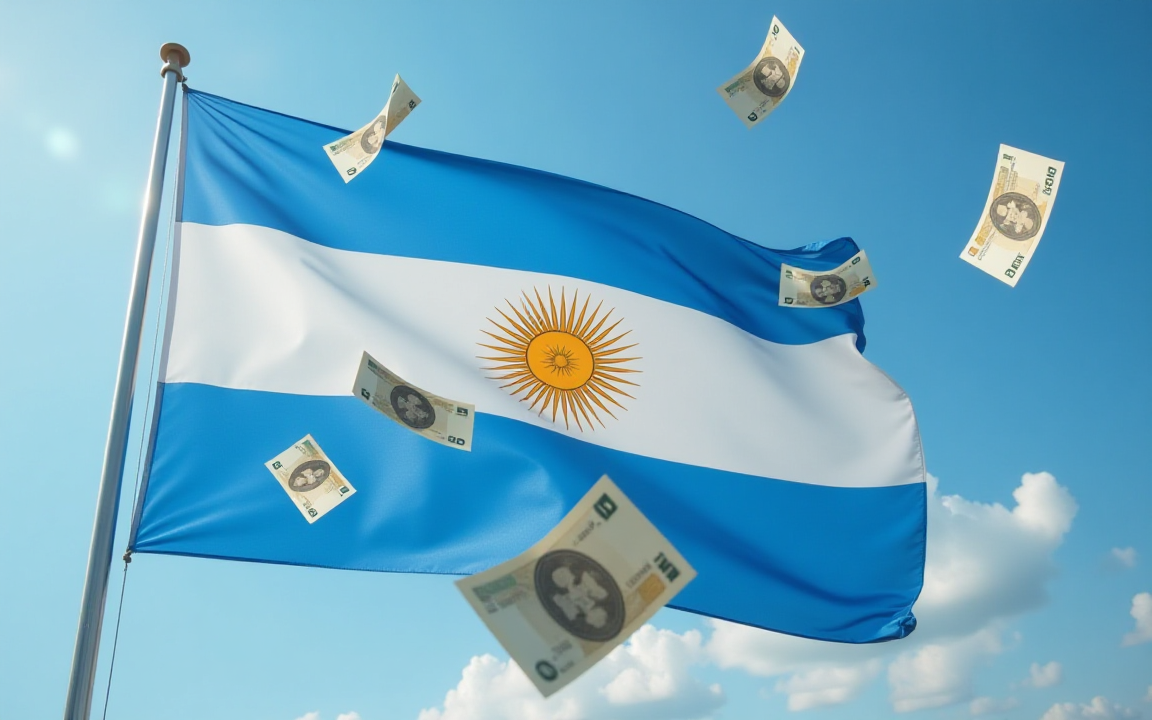Consumer prices in Argentina are projected to have risen 2.0% in August from the previous month, edging up from July’s 1.9% increase, according to a Reuters survey of analysts released Monday.
The expected uptick is being driven mainly by higher food and public transport costs.
Even so, the broader trend of slowing inflation remains intact, with the 12-month rate likely dropping to its lowest level in seven years.
Argentina’s national statistics agency is set to publish the official data on Wednesday.
Poll suggests that price rises will be seasonal and restricted
The survey of 20 analysts conducted between September 3 and 5 showed a median forecast of a 2.0% rise in Argentina’s headline consumer price index for August.
Seasonal factors were cited as the main driver, with vegetables lifting food prices, while increases in transport and cigarettes pushed regulated prices higher.
Consultancy EcoGo estimated seasonal prices rose 2.8% and regulated categories 2.2%, underscoring the impact of everyday spending pressures on households.
Annual inflation is at its lowest since 2018
A smaller sample of seven experts in the poll projected that annual inflation fell to 33.8% in August from 36.6% in July.
If confirmed, this would be the lowest level since July 2018, when the 12-month rate was 31.2%.
One of the primary achievements of President Javier Milei’s government in its first year was the strong disinflation, which followed an aggressive policy move aimed at stabilising prices and boosting investor confidence.
Currency turbulence complicates the outlook
However, new challenges confront progress on inflation.
Rising peso pressures over the past couple of months have tested price stability.
Economists caution that the pass-through from exchange rate movements to consumer prices remains a concern, even if it has so far been contained.
The government has relied on restrictive monetary policies to curb inflationary pressures.
This has driven interest rates sharply higher, absorbing excess liquidity and reducing speculative demand for dollars.
Yields on short-term bills have surged, pulling in cash that might otherwise have fled into hard currency, analysts noted.
Political tensions ahead of the midterm elections
The results of the Buenos Aires vote leave Milei’s party lagging in the national Congress midterm elections on October 26.
Investors and analysts warn that the results may limit the administration’s capacity to accomplish reforms in the second part of its mandate.
Financial markets are bracing for volatility at the start of the week, with local equities and bonds expected to respond to recent political developments.
If confidence in fiscal and monetary policy pledges erodes, renewed market stress may fuel new inflation concerns.
Inflation path remains central to Milei’s agenda
Argentina, however, is currently on course to record yet another deceleration in annual inflation, one that would lock in a disinflationary trajectory relative to the stubbornly high and sustained inflation rates of the past years.
However, with the resurgence of exchange-rate volatility and escalating political risk, the outlook is decidedly tenuous.
The next few weeks will represent a challenge for Milei’s government as it grapples with increasing currency volatility, rising borrowing costs and an electorate displaying early signs of discomfort.
Keeping the inflation line will prove to be crucial, both for the determination of economic momentum and for the political future of the libertarian president.
The post Argentina inflation seen picking up in August as peso pressures mount appeared first on Invezz

